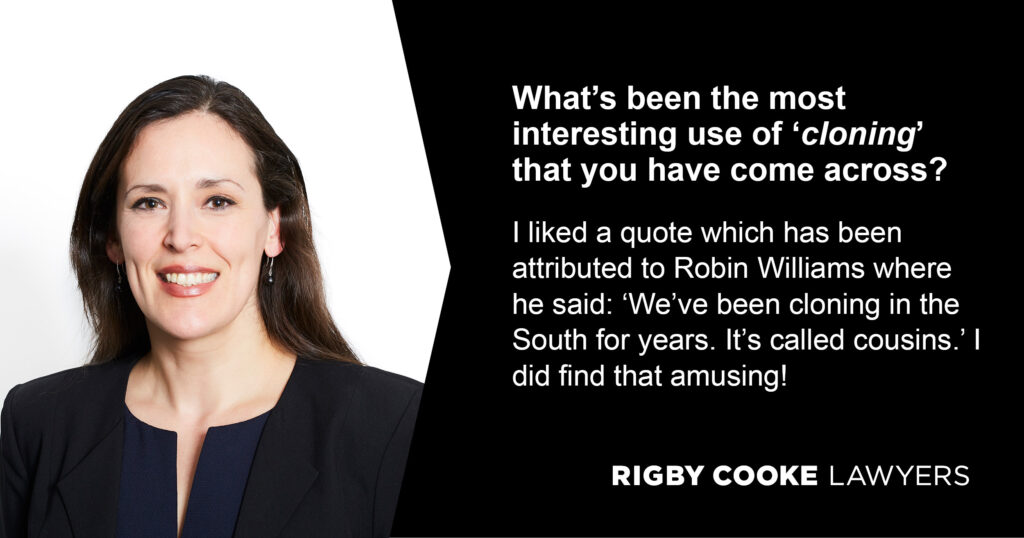Have you ever read something and thought, “I’m not sure what that means” or “is that really correct”? Welcome to our series of quickfire interviews that attempt to unravel those interesting words and phrases.
In this edition, we speak to Tax Counsel Tamara Cardan who talks to us about the word she finds interesting, which has multiple definitions, cloning.
What word or phrase have you chosen and what does it mean?
Obviously, the word cloning has several definitions. For example, in the medical field it means to propagate (an organism or cell) as a clone or to make an identical copy of; and to replicate (a fragment of DNA placed in an organism)1 so that there is sufficient to analyse or use in protein production.
Why do you like this word or phrase?
When I think of the word ‘cloning’, I immediately think of sci-fi movies such as ‘Star Wars: Attack of the Clones,’ and I also recall recent discussions in the media regarding whether a dinosaur could be cloned; I think there was some excitement when mammoth DNA was found.
What’s been the most interesting use of this word or phrase that you have come across?
I liked a quote which has been attributed to Robin Williams where he said: ‘We’ve been cloning in the South for years. It’s called cousins.’ I did find that amusing!
When did you first come across this word in a tax context?
When I authored tax publications in a previous role, I was required to write a chapter on trust cloning. I initially thought it was a clever adaptation of this phrase in such a different context.
For tax purposes, cloning broadly involves creating a new trust (the ‘cloned trust’) which is identical to an original trust, and then transferring assets of the original trust to the trustee of the cloned trust. There is currently no Capital Gains Tax relief on the transfer of assets to a cloned discretionary trust. So it looks quite likely that we may be able to clone mammoths, but we can’t clone discretionary trusts!
1. https://www.lexico.com/definition/clone
| Disclaimer: This publication contains comments of a general nature only and is provided as an information service. It is not intended to be relied upon as, nor is it a substitute for specific professional advice. No responsibility can be accepted by Rigby Cooke Lawyers or the authors for loss occasioned to any person doing anything as a result of any material in this publication.
Liability limited by a scheme approved under Professional Standards Legislation. ©2021 Rigby Cooke Lawyers |

